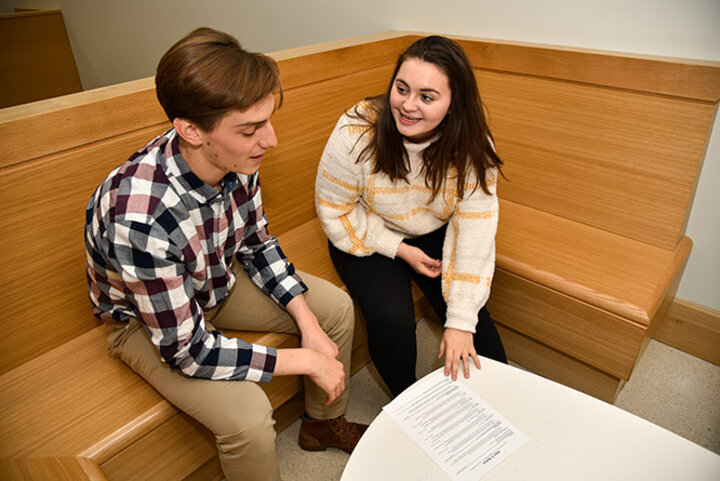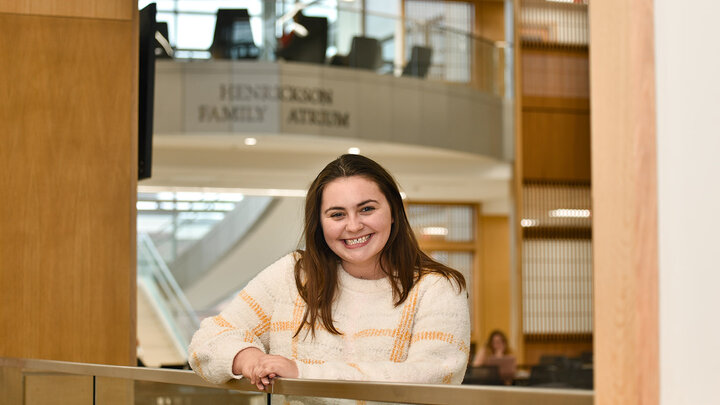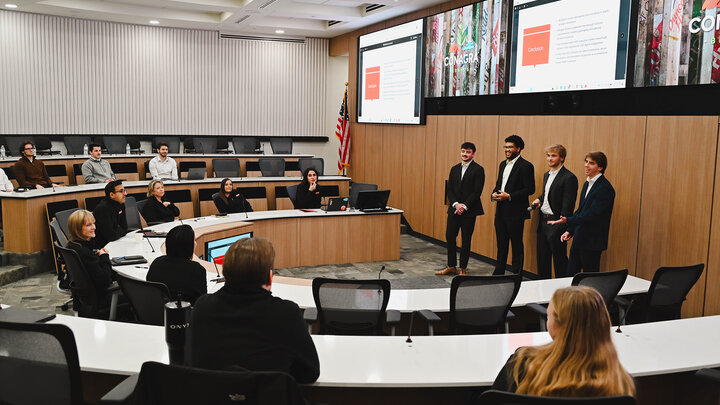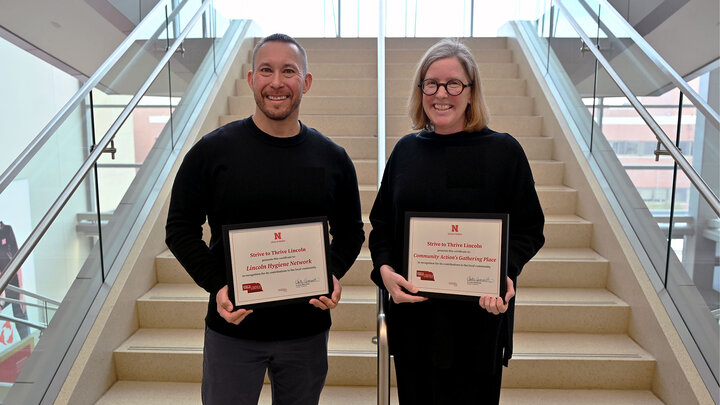When her freshmen year ended, Kennedy Johnston felt uncertain about her next steps. However, an unexpected opportunity led her accept a research assistantship in the Department of Economics at the University of Nebraska–Lincoln College of Business.
“At the time, I didn't know what I was going to do with my life, but I have a rule not to rule anything out until I've tried it once. Even though I wasn't sure the research would be a good fit, I couldn’t say no because it was a good opportunity,” explained Johnston, a sophomore economics major from Carbon, Indiana.
While the realms of research and economics were both unexplored areas for Johnston, the area of study captivated her to take up the assistantship.

“They were examining the gender wage gap, something I feel strongly about. I think that's a big issue and knowing I'd be working on a project I already feel passionate about fascinated me,” she said.
It was no secret to Johnston on who recommended her for the research project. As a Nebraska Business Honors Academy student, she had taken introductory economics courses taught by Dr. Sam Allgood, Edwin J. Faulkner Professor of Economics. Allgood’s teaching methods influenced Johnston’s decision to take the leap into economics, and he knew the research assistantship suited her to a tee.
“Kennedy has all the elements of a good research assistant. She is conscientious about her work so the professors she works for do not have to double check what she is doing, and she is diligent about what she is doing so they do not have to wonder if the work will get done. Most importantly, she is intelligent and understands what she is doing and why, enabling her to deal with problems that might arise on her own,” explained Allgood.
During the assistantship, Johnston worked alongside accomplished economics faculty, Dr. Ann Mari May, professor of economics and Dr. Daniel Tannenbaum, assistant professor of economics. An uncommon position for undergraduate students to hold, Tannenbaum touted how research assistants are instrumental in the research process.
“Research in economics is increasingly being produced by teams of researchers, including professors, graduate students, and undergraduates, each of whom play a critical role. Research assistants carry out the data collection, analysis and computer programming. They benefit from learning about the process of doing research: having a question about the world – a question not fully answered or understood – and, through a series of incremental steps, answering the question using both theory and data. These skills apply broadly to any type of work that requires problem solving or methodically testing and refining current approaches to improve what we know,” he said.
Her time digging through real-world data had Johnston come out head first with visions of a career in government to affect change with public policy. She now views economics differently than before, which she claims will help propel her into a brighter tomorrow.
“I had only seen economics through a qualitative lens of theories and concepts rather than the research that goes behind it. Because there is a research component with public policy and law, working on a project that dealt with something prominent in politics helped me figure out the rest of my future,” Johnston said.
To learn more about the Department of Economics, visit: https://business.unl.edu/economics.




